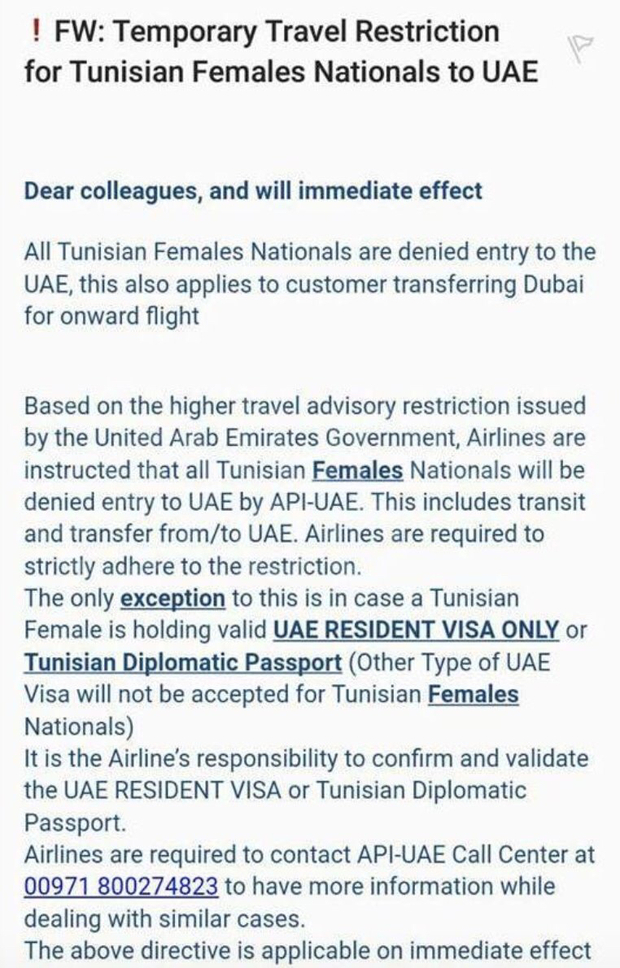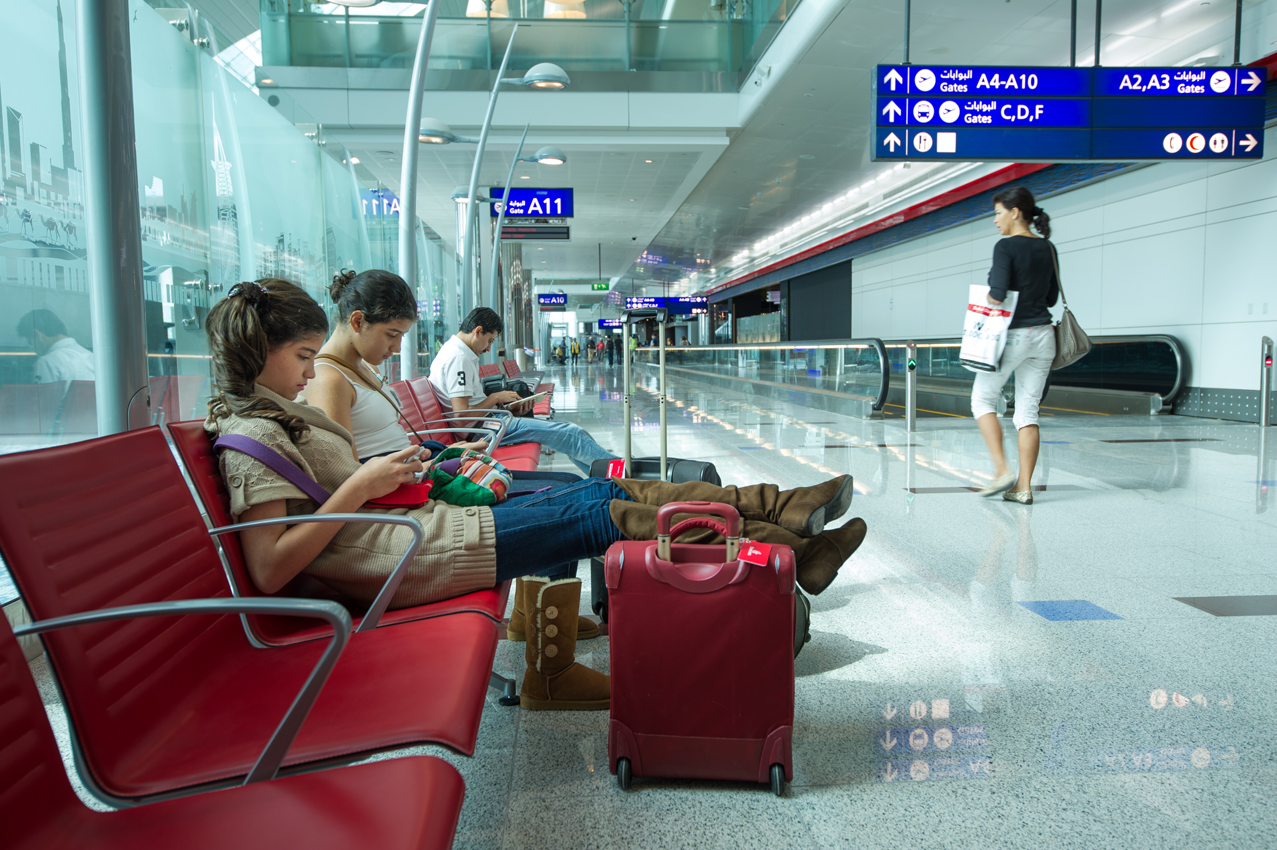UPDATE (Sun 24th December 2017 – 22:00 GMT) – Emirates Airline has confirmed it will suspend services between Tunis and Dubai indefinitely, following an order from the Tunisian government. The country’s transport ministry said the airline would be barred from flying to Tunisia until it could find “a way to operate according to international law and treaties.” The measure was introduced following the United Arab Emirates temporary ban on Tunisian females entering the UAE.
Was it a simple mistake? A computer glitch? Or perhaps an urgent but top-secret security arrangement? Nobody quite knows but yesterday, the UAE banned all female Tunisian nationals from entering the country or even transiting through the country’s airports. The only exception was for UAE Resident visa holders and Tunisian diplomatic passport holders.
Yet just 12-hours later the temporary ban had already been lifted. Any mention of the ban had been wiped without a trace from the official websites of the UAE government and Dubai Media Office.
The ban came without notice and we’re led to believe that international airlines who operate flights to the UAE were asked to immediately comply with the instruction. Carrier’s scrambled to identify affected passengers in order to quickly remove them from flights.
In a leaked internal memo from the UAE’s largest airline, Emirates, staff were told: “all Tunisian Female Nationals are denied entry to the UAE, this also applies to customer(s) transferring Dubai for onward flight(s).”
The memo cited a “higher travel advisory restriction issued by the United Arab Emirates Government” saying the restriction also applied to “transit and transfer from/to UAE.” A similar public travel advisory was published on the Emirates website a short time later.

But no one knows why the UAE government so suddenly took this action. The restrictions were lifted late on Friday evening when the Tunisian Ministry of Foreign Affairs summoned the UAE’s ambassador in Tunis. The Ministry reportedly said the restrictions were related to “security issues” and claimed they were “circumstantial.”
Tunisia has been rocked by a series of terrorist attacks in recent years. The US State Department says the main threat comes from Al Qaeda in the Islamic Maghreb and Libya-based extremists. In 2015, 59 foreign tourists were killed in two terrorist attacks in the country.
The first, in March, occurred at the Bardo Museum in Tunis. In June 2015, 38-holidaymakers were killed in a gun attack on a beach at Port El Kantaoui near Sousse. More recently, in November, two police officers were killed in a terrorist attack in central Tunis.
According to the Carnegie Research Center, relations between Tunisia and the UAE have been strained in recent years. The UAE “gradually distanced itself diplomatically from Tunisia” since 2011 as it grew unhappy with the government’s foreign policy.
In the recent dispute between a Saudi-led bloc of countries including the UAE against Qatar, the Tunisian government has tried to remain politically neutral. Qatar is Tunisia’s largest foreign investor – in late 2016, the Qatari government announced a $1.25 billion financial aid package for the country.
It’s likely the temporary ban was put in place due to intelligence about a possible terrorist attack. While the ban didn’t affect UAE Resident visa holders we don’t yet know whether Tunisian nationals who are due to have their visas renewed will face any problems.
Clearly, this could also have a big impact on Tunisian nationals who are seeking a job with any of the UAE airlines including Emirates, Etihad, flydubai and Air Arabia. Airlines in the country have in the past relied heavily on Arabic speaking staff from Tunisia. Whether this latest development could see recruiters moving their attention to other Arabic-speaking countries remains to be seen.




